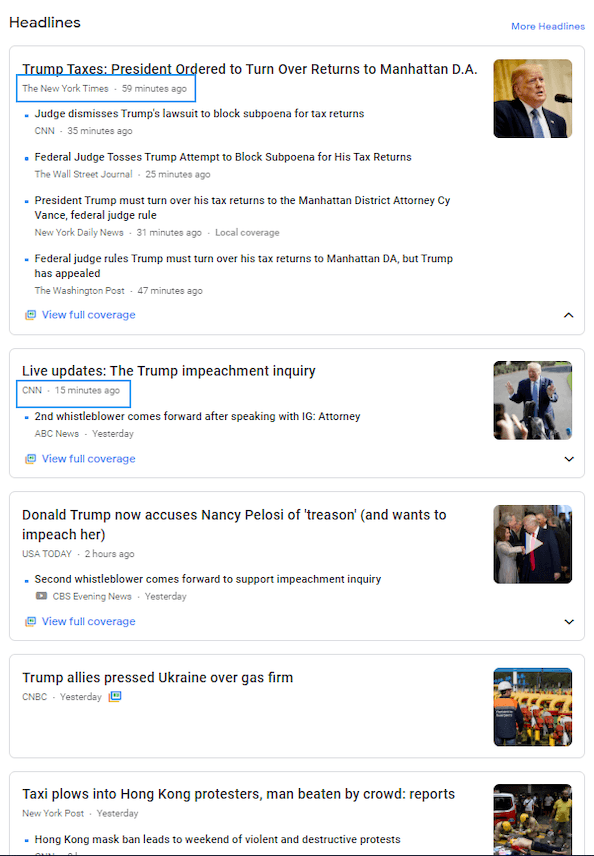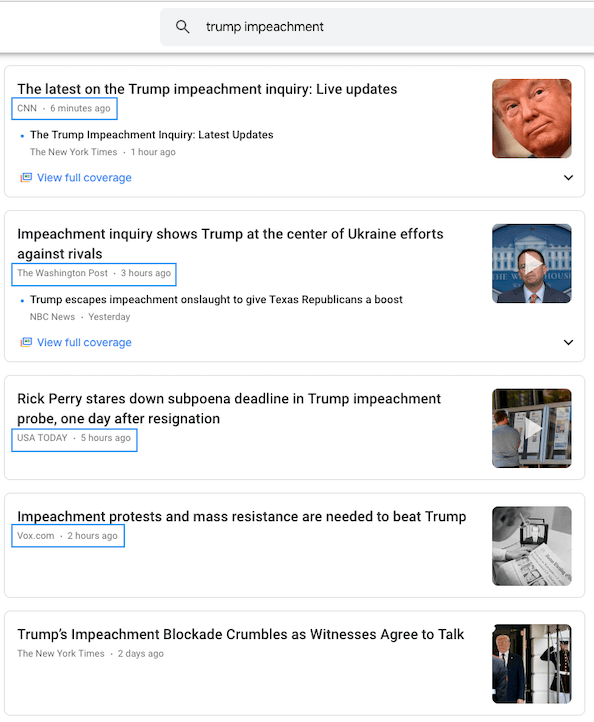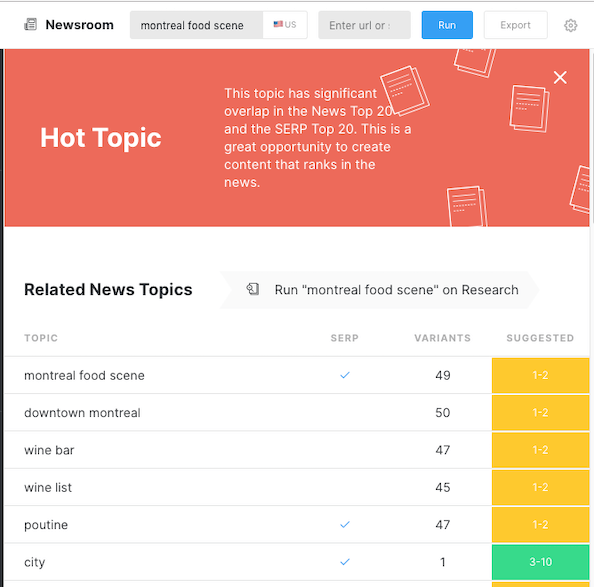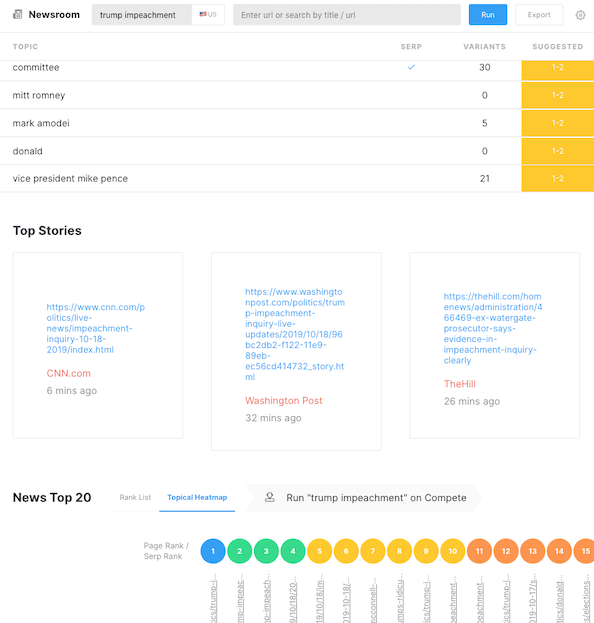How to Succeed in Google News
Google News, like search in general, has changed dramatically since the early years. At one time, surfacing news items was as simple as matching keywords on a page to a search term.
But those days have long passed, and traditional search engine optimization techniques have limited impact.
How do you get featured on Google News?
To perform well in Google News, news publishers require a more sophisticated approach. In light of recent changes to the search engine, let’s look at how to do this.
How Google News Organizes and Displays Results
Accurately presenting news information poses significant challenges for the search engine. Four significant factors influence Google News results.
Context
How people access information, or the setting, matters a great deal. There are queryless feed environments, including the default feed and personalized results. Timely search queries (Top Stories) is another way of getting results as is untimely search queries – organic results that are longer-standing.
Search Intent
Search intent can be either explicit or fractured, affecting what gets displayed. When the intent is clear and unambiguous, the SERP tends to be homogenous. Everyone is addressing the same intent.
However, with multiple intents, the SERP becomes more diverse and fractured. Google is attempting to surface the best stories that address a variety of intentions.
Publisher Expertise, Authority, and Trust
Expertise, Authority, and Trust as determined by Google’s Quality Raters do not directly impact rankings on particular SERPs, but provide valuable feedback on the quality of results and influence the algorithm as a whole.
Authoritative news sites, such as CNN, have strong reputations and thus tend to rate well based on Google’s Quality Rater Guidelines (QRG).
Original Reporting
Together, freshness and authoritativeness can create some complex variations. How long an original piece occupies a prominent position varies over time as the story progresses.
- Is the essence of the story a continuation, or is it changing based on coverage by others?
- Is the original report being attributed as an endorsement or because it’s being questioned?
Understanding what stories are being presented and how they are presented can have a dramatic impact on how news articles are optimized. Let’s take a look at some examples.
Here’s one of a queryless feed environment. Top Stories provides some fresh content, all of which comes from authoritative sources providing reasonably broad coverage.

Here’s an example of a timely result showing explicit search intent and revealing that freshness is a key ranking factor.

This last example about the Boston food scene shows explicit search intent with low SERP diversity. It’s not a very popular search term, and as a result, the news isn’t timely.

The Importance of Original Reporting
Google recently announced an algorithm change that will reward “original reporting.” Per the QRG, this is reporting “that provides information that would not otherwise have been known had the article not revealed it.”
In the latest patent update, Bill Slawski explains that Google will use a system that can “identify a document; analyze a measure of originality of the document, the measure of originality based upon a similarity of text of the document to one or more other documents…” This marks a meaningful change from prior implementations where geography or keywords had more notable importance.
One of the core ways Google can identify “original content” in a corpus of millions of documents is by determining how many “entities” – proper nouns such as people, places, ideas, and objects – are mentioned in an article relative to others within a cluster of related materials.
MarketMuse Newsroom Application
This is where topically-oriented SEO meets hard news. MarketMuse Newsroom application supports two core initiatives – leveraging news for topical authority and extending Google News longevity.
Leverage News for Topical Authority
MarketMuse Newsroom makes news articles more comprehensive, which can improve the impact on SEO. In their recent announcement on changes to Google News, the search engine stated they aim to present the “most comprehensive version of a story in news results.”

Additionally, that in-depth content provides improved content cluster support. Those clusters, in turn, help boost your topical authority, providing further positive reinforcement.
Extend Google News Longevity
MarketMuse Newsroom increases the lifespan of news articles by helping news outlets understand which stories are ranking, gain insights into competitor coverage, and improve standings for breaking news.
MarketMuse Inventory
MarketMuse Inventory analyses all the content on your site, keeping track of how they perform in search along with many useful metrics. In conjunction with Newsroom, it enables you to:
- Know what you need to write about
- Know how to write it
- Understand how to differentiate and perform against other news organization
- Determine how are the competitors winning (what angles they’re using)
MarketMuse Newsbrief
Knowledge is great, but action is better. MarketMuse Newsbrief enables you to turn insight into action. It’s like a blueprint showing you how to write the article to perform the best it can in search.

Summary
Competing for visibility in Google News is increasing in complexity as the search engine becomes more advanced. As Google evolves, so too must the approach to creating content. While Google strives to provide the most helpful results and to weed out fake news, news publishers still need to do what’s necessary to get an edge over the competition.
